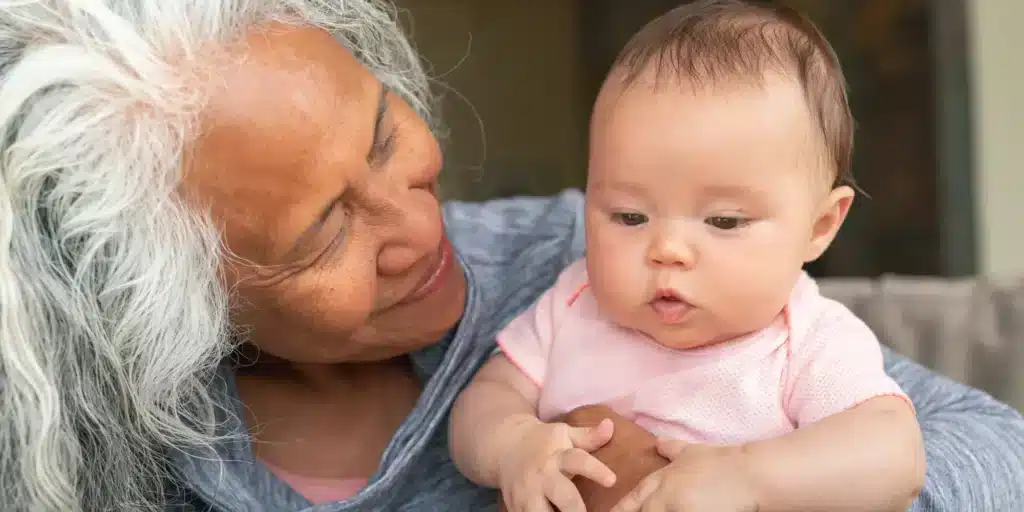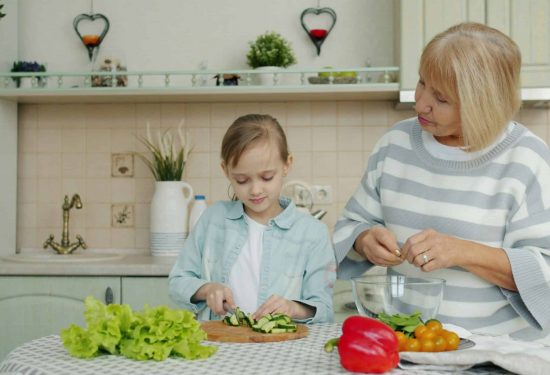Many of us at some point in our journey, if we’ve been fortunate, have been “othermothered.” For some, it was a neighbor who met them at the bus stop after school, provided snacks and supervised homework. For others it was a “nana” or “gigi” who lived nearby and nurtured each newborn baby of the family during their first six months. For my brother and me, it was an aunt who cared for us while our parents were at work, until we went to preschool at 4. Sociologist Patricia Hill Collins describes othermothers in her writing as women who assist biological mothers by sharing mothering responsibilities for children in both formal and informal arrangements for periods of time. Collins points out that in the African American community, specifically, “othermothering” has been a survival technique for families fractured by slavery and segregation and forced to live at the margins of American society. The concept of “othermothering” can also be found in many other cultures known by other names.
As in my family’s case, many families rely on the support of “othermothers” or “community mothers” to meet a need for child care. Though not in a formal preschool setting, those early years with my aunt anchored me and I still have fond memories of them. My aunt provided consistency in my daily experience, she engaged in serve and return with me while we ran errands in the community. She sang children’s songs with me (songs I still remember today) and made sure I had time to play outside on her block in West Philadelphia with other children who became my first friends. My aunt helped me to shop at the thrift stores for accessories to aid my imaginary play adventures and she lovingly reminded my parents to make sure I had time in the morning to dress my dolls in their snowsuits before bringing them to her house on wintery mornings. Those experiences with my aunt nurtured my language acquisition, cognitive development, physical development and social emotional development.
The early learning sector calls these “othermothers,” like my aunt, who fill child care gaps Family, Friend and Neighbor (FFN) caregivers. FFN is a broad term encompassing many types of caregivers, typically those who have a previous relationship with the children for whom they care. They are the grandmothers, nanas, aunties, abuelitas, family, friends and neighbors who care for children. Most states allow FFN caregivers to be legally license exempt, or legally nonlicensed, meaning they are not required to pursue licensure to serve the (usually smaller) number of children they care for. These caregivers may be paid or unpaid and may not view themselves as providers. There are over 5 million FFN caregivers around the US who care for 11.5 million children, including 6.8 million children ages 0-5 (NSECE 2019). Further, one in four children in the U.S. under the age of 5 is cared for by a grandparent some or all of the time their parent is at work (ZERO TO THREE 2017).
Despite its grounding in the survival of communities, its prevalence and the clear preference of many families, FFN care is very rarely included in discussion about building child care supply or in discussions about child care policy, resources and support. Moving the early childhood policy conversation toward inclusion of FFN care in a comprehensive vision for publicly funded, universally accessible, affordable, quality child care often gets stuck on the issue of quality. Some researchers assert that the complex intersections of race, gender and class in our country contribute to the exclusion of FFN care from early childhood policy conversations and make us question families’ preference for FFN care. Questions often arise: How do we know that there is quality in all of these settings? What are the regulations we will put in place to mandate quality for this care? What tools can we use to measure quality? What systems will we put in place to support quality and to ensure that quality is occuring? When it comes to federal policy and funding for child care, finding answers to these questions in ways that acknowledge the uniqueness of families across 50 states, tribal nations and territories is not a simple task.
Yet, research on FFN care and its quality, particularly research that centers the voice of FFN caregivers and the families that choose them, point us to a starting place for the quality care conversation. Home Grown contracted with Mathematica to identify the strengths of FFN care and the critical considerations for understanding and measuring quality in FFN settings. The resulting report, Understanding the Strengths of Family, Friend, and Neighbor Child Care, presents a conceptual framework that outlines the key characteristics of FFN care, the prevalence of these characteristics in two communities of FFN caregivers from the perspective of FFN caregivers and the families who use this caregiving arrangement, and offers recommendations for advancing the conversation about quality in FFN care.
Not surprisingly, among the report findings:
- Parents chose FFN care because they trust that their children will receive care that is nurturing and responsive to their needs.
- Parents chose FFN care because it is a cultural and linguistic match for their family.
- Parents chose FFN care because FFN caregivers support the child in the context of the family, helping families connect to community resources, sharing food and helping with daily routines.
- Parents chose FFN care because FFN caregivers attend to children’s social emotional development and teach them how to manage their emotions and how to make friends.
- Parents chose FFN care because they curate routines and experiences that nurture child development.
These preferences echo the findings of some of the most renowned and respected child development theorists and early childhood pedagogical leaders:
- Abraham Maslow puts forward in his hierarchy of needs that an individual’s basic needs include things like food, shelter, water, safety, and belongingness and he asserts that these needs must be met in order to reach the full human potential.
- John Bowlby, Mary Ainsworth and Harry Harlow, all attachment theorists, advanced our understanding about the critical role that secure attachment relationships play in the healthy development of young children.
- Progressive pedagogy asserts that facilitating learning for young children requires responsive teaching practice such as meeting children where they are, building upon their interests and individualizing the learning experience for children’s uniqueness.
- Uri Bronfenbrenner posited in the ecological systems theory that child development is influenced by the context of the ecosystems of family and community.
- Lev Vygotzky’s sociocultural theory asserts that we learn in the context of relationships and that human learning is a social process. Vygotsky’s theory suggests that cognitive development is maximized when we can make meaning with others.
- Sonia Nieto reminds us how important it is for children’s early learning experiences to affirm their culture and home language.
- Luis Moll’s theory on “Funds of Knowledge” illustrates the impact that learning environments can have on child development when they affirm the cultural capital and “Funds of Knowledge” found in children’s families.
- Gloria Ladson Billings offers that culturally relevant teaching and learning can happen when children have a chance to see themselves reflected in the learning environment (in their caregivers, teachers, toys, learning materials and books) and when they have opportunities to learn more about and see into the lived experiences of others. Culturally relevant teaching helps children recognize and honor their own culture while accessing and learning about the wider world.
This is just a short list, but there are many more theorists and researchers whose work on child development and learning can be connected to the quality that families find for their children in FFN settings.
In celebration of FFN Appreciation Week and as those who understand the value of family, friend and neighbor care for parents and the “goodness of fit” that over 6 million children around the U.S. find in FFN settings, the call to action is clear– we must continue to amplify the many stories from families around this county who use FFN care, we must listen to FFN caregivers and families when building definitions of quality and we must bring these new frameworks for understanding the needs of families, children and communities into our child care policy making so that FFN care is included, resourced and supported.
Alexandra R. Patterson is the director of policy and strategy for Home Grown. She was previously the intermediary director for Philadelphia’s pre-K program and held various roles in Pennsylvania’s QRIS program including professional development and technical assistance manager. Alexandra started her career as a Head Start teacher in New York City. Alexandra holds a master of science in early childhood education from the Bank Street School of Education and a bachelor of science in early childhood education and early childhood special education from the University of Delaware. Alexandra was born and raised in Philadelphia and continues to live in the surrounding area.




